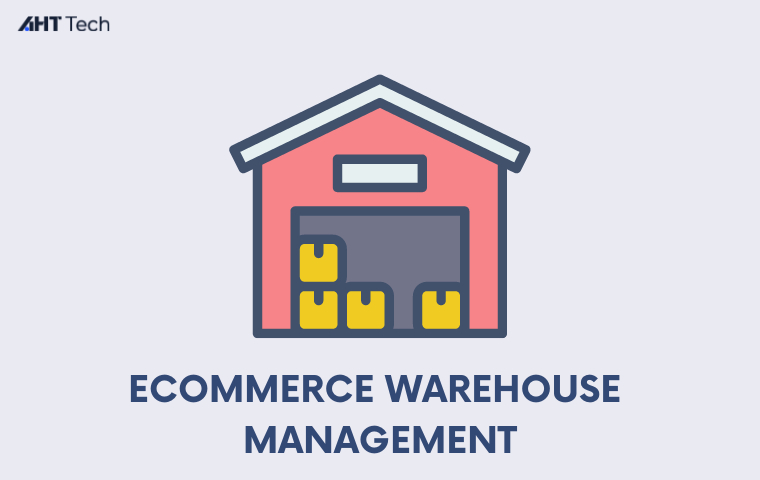TABLE OF CONTENT
What is Ecommerce Warehouse Management?
Benefits of Ecommerce Warehouse Management Systems
Key considerations when choosing an eCommerce Warehouse Management System
Top 5 eCommerce Warehouse Management Systems
Conclusion
What is Ecommerce Warehouse Management?
Running an ecommerce business, merchants have to face numerous challenges and complexity such as website performance, data protection, inventory management, etc. Handling all these tasks manually can be overwhelming. That’s where warehouse management software comes into addressing the puzzle of stocking.
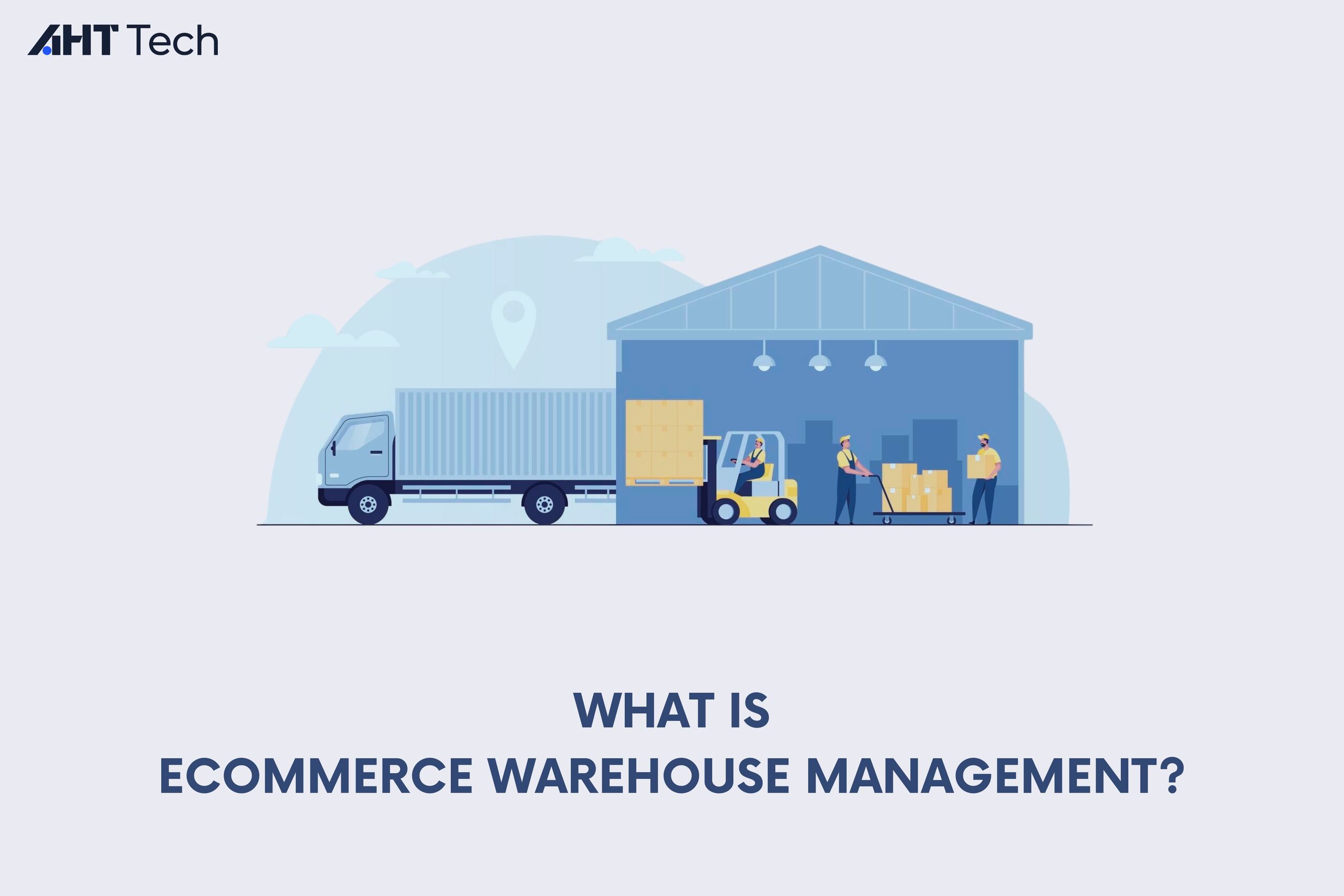
An ecommerce warehouse management system (WMS) is a software solution designed to monitor and control day-to-day activities within a warehouse. This software helps facilitate tasks such as receiving, storing, picking, packing, shipping, and restocking inventory, aiming to optimize efficiency in these operations.
Benefits of Ecommerce Warehouse Management Systems
An ecommerce warehouse management software is an integral part in managing order fulfillment processes, from receiving raw materials to delivering goods to the end customers. This streamlined efficiency enables ecommerce business owners to improve accuracy, fasten order fulfillment and enhance overall customer satisfaction. Break down the core advantages of ecommerce warehouse management with us in this section.
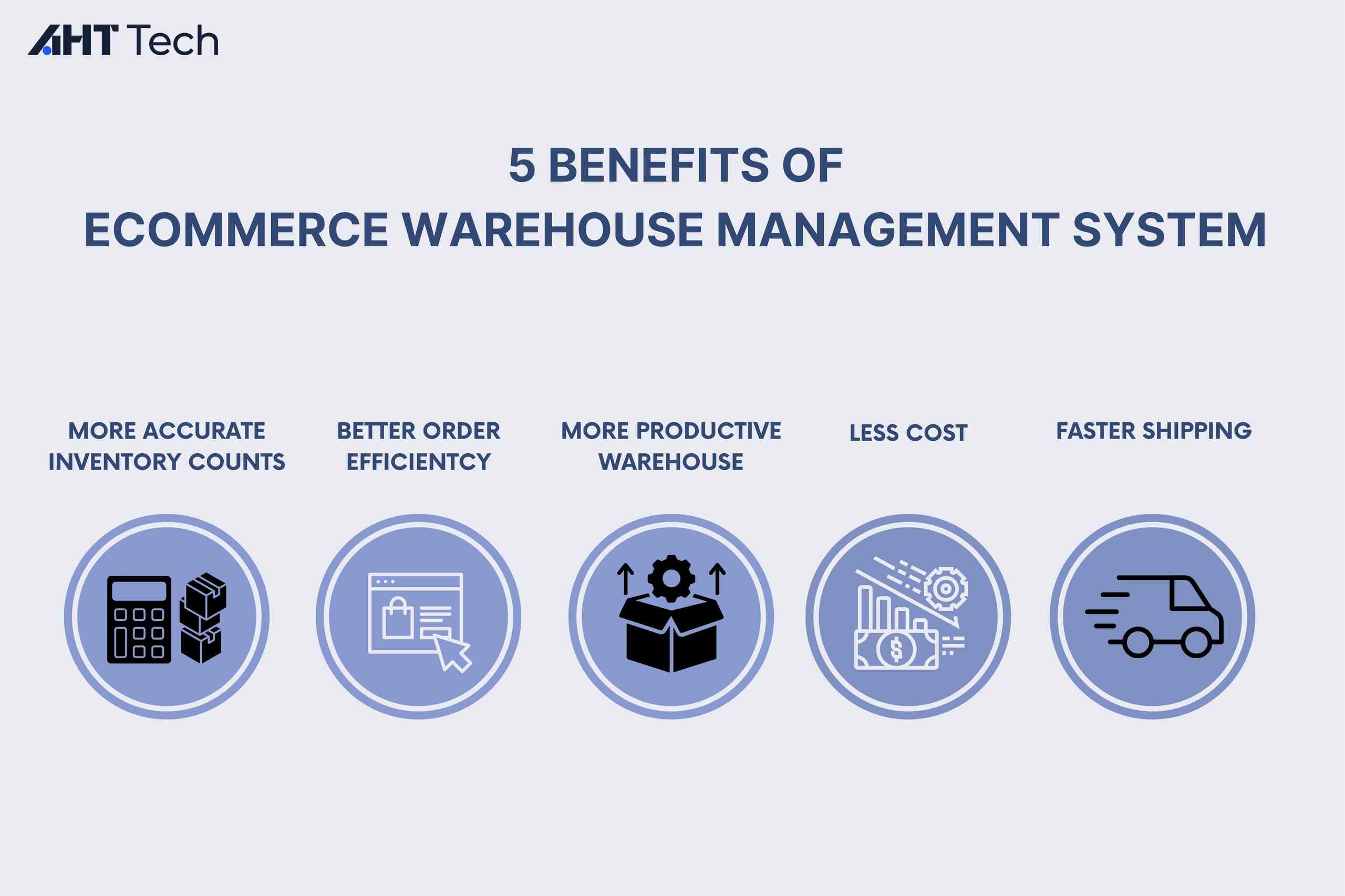
More accurate inventory counts
When implemented effectively, an ecommerce warehouse management system can tell you exactly how much inventory is currently stored in real-time, preventing inventory shrinkage. This is accomplished by barcodes scanning functionality when new inventory is entered as well as when items are picked for an order, ensuring a more precise tracking process of stock movements.
Moreover, an ecommerce warehouse management software also provides comprehensive visibility into your inventory. By utilizing this system, you can acquire deeper insight into the location of stock within your warehouse. This allows you to gain real-time data and make more informed decisions regarding inventory management.
Better order efficiency
It is undeniable that ecommerce warehouse management streamlines the order picking and packing process. Through monitoring and tracking features, ecommerce warehouse management software enables faster order processing by helping determine the optimal picking routes. This is the catalyst for a higher level of logistics speed and customers can receive their ordered products more quickly.
More productive warehouses
Reworking tasks such as recounting inventory or repackaging products represents a significant cost for warehouses. When your team spends a large amount of time on these activities, your warehouse is burning through cash.
To address the issues, ecommerce warehouse management can collaborate with automation systems to relieve team members of more simple, repetitive, and time-consuming tasks, thereby standardizing the process. This enables workers to concentrate on assignments that demand human intervention, ultimately enhancing efficiency. Hence, the job after ecommerce checkout gets done correctly on the first attempt.
Less cost
Although an ecommerce warehouse management system can seem costly, it makes up for it with efficiency gains.
Over time, leveraging ecommerce warehouse management provides cost-savings by:
- Decreasing manual errors such as stowing errors and mispicks
- Templetizing and simplifying complex tasks thereby reducing the necessity for rework
- Accelerating order fulfillment processes to optimize the utilization of labor hours
- Preventing inventory shrinkage and expensive stock outs caused by insufficient visibility
Enables faster shipping
Customers want fast shipping, of course. In fact, a study revealed that 57% of consumers do not want to come back to a retailer if they have once experienced a delay in delivery.
By implementing an efficient ecommerce warehouse management to optimize your fulfillment logistics, your business stands a better chance of providing 2-day ground shipping nationwide. Depending on the capabilities of your particular ecommerce warehouse management, you can also ascertain shipping times through optimal supply chain operations and assess the feasibility of offering expanded shipping options.
Key considerations when choosing an eCommerce Warehouse Management System
With a hyper-connected network of data and operations, perhaps small and medium-sized businesses all desire ecommerce warehouse management that are able to function on a worldwide scale. But how can you judge the functionalities of these systems? A good ecommerce warehouse management will help any firm to be aware of the situation and operate to meet today’s and tomorrow’s demands swiftly and easily.
There are 5 key points that are worth taking into consideration when opting for an ideal software for your businesses.
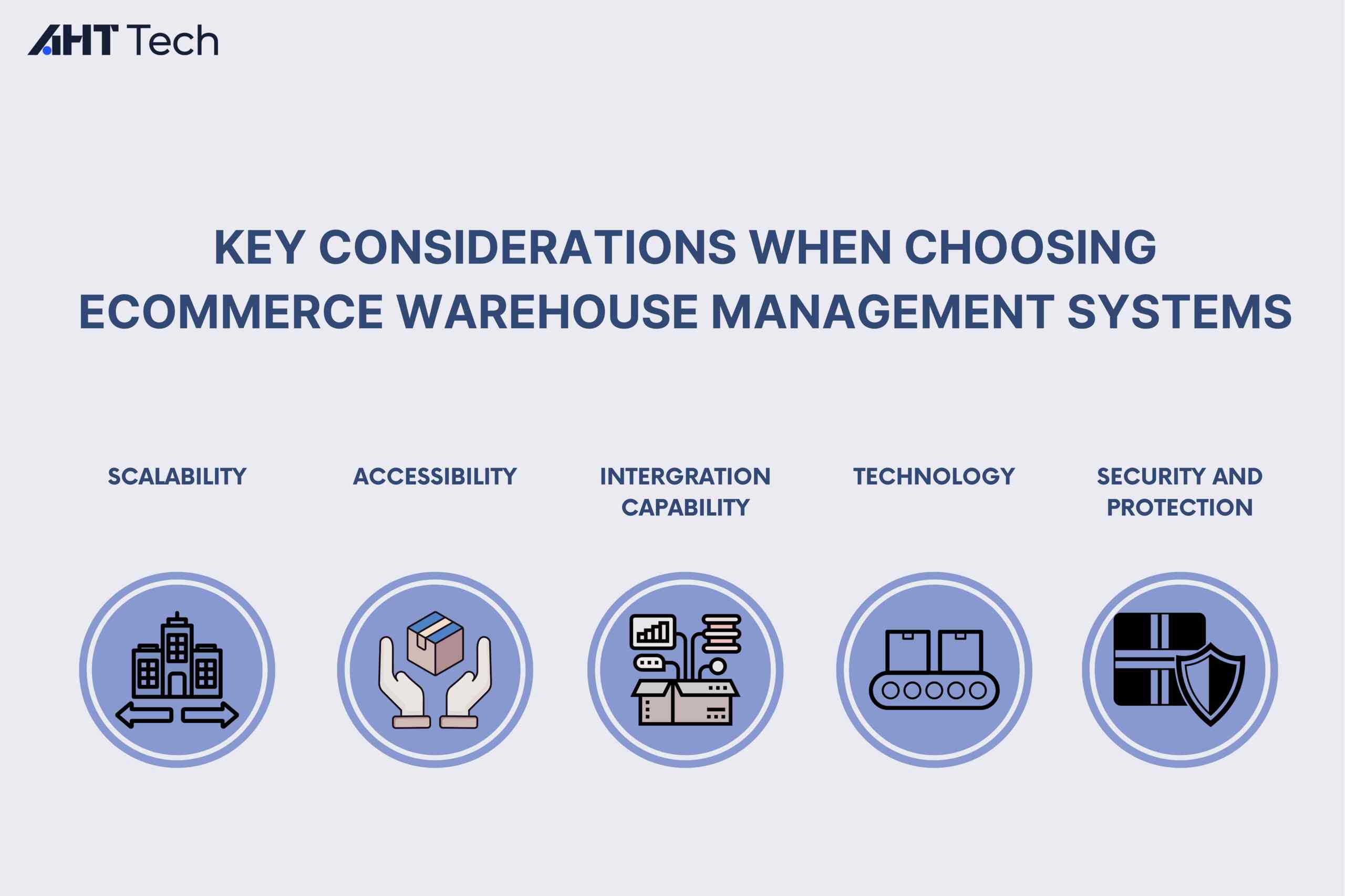
Scalability
A scalable ecommerce warehouse management is crucial for growing businesses if you are a SMB targeting for global expansion. Merchants should opt for a solution that can adapt to increased order volume or additional features. This ensures that the warehouse system can meet the evolving requirements of your operation in the future.
Accessibility
While the location of the warehouse is crucial, equally important is the accessibility of the warehouse. Delays in receiving inventory or shipping orders can occur if the warehouse is not easily reachable. Before selecting an ecommerce warehouse, it’s essential to consider the following factors:
- Road conditions
- Traffic patterns
- Proximity to highways
These issues can also lead to accidents, increased fuel consumption, and wasted time, all of which can impact the efficiency of warehouse operations.
Integration capability
A well-designed ecommerce warehouse management should enable seamless storage and distribution of inventory by providing integrated features like highly trained manpower, transportation services and well-designed storage facilities (optimized warehouse layout). Such integrated ecommerce warehousing solutions are often offered by tech-enabled 3PLs like Eshopbox that can give you a superior quality of service.
Additionally, they can help you optimize your warehouse operations and rise above common warehouse management challenges.
In addition to efficient order management processes such as picking, packing, and shipping, it’s crucial to have access to a warehouse that offers comprehensive fulfillment services. That’s why it is important to cover the ability of integration services while choosing the ideal warehouse solution.
Technology
The way ecommerce warehouse management works has been changed by technology, and the warehouse you select should allow easy integration with your inventory management system, warehouse management system, and sales channels. This integration facilitates faster order fulfillment processes. Therefore, leveraging technology to automate warehouse operations is essential, rather than relying on manual processes which can trigger errors.
Security and protection
Things can go wrong even with the best ecommerce warehouses. You need to ensure that your inventory is protected against any hazards, such as breakage, shrinkage, theft, and natural calamities. An ideal ecommerce warehouse should be equipped with robust safety measures to protect your inventory effectively.
Top 5 eCommerce Warehouse Management Systems
Ecommerce warehouse management is fundamental in a company’s management system. The warehouse management systems are able to handle high volume of material flow processes to optimize the overall supply chain management. Below are top 5 highly recommended ecommerce warehouse management software.
Odoo
Odoo is one of the best trusted ecommerce warehouse management which offers a robust ecosystem and extensions to alter your build-in modules.
Key features
- Optimize warehouse efficiency thanks to its clever double entry inventory system.
- Deliver complete supply chain tracking, providing more detailed and clearer visibility into inventory.
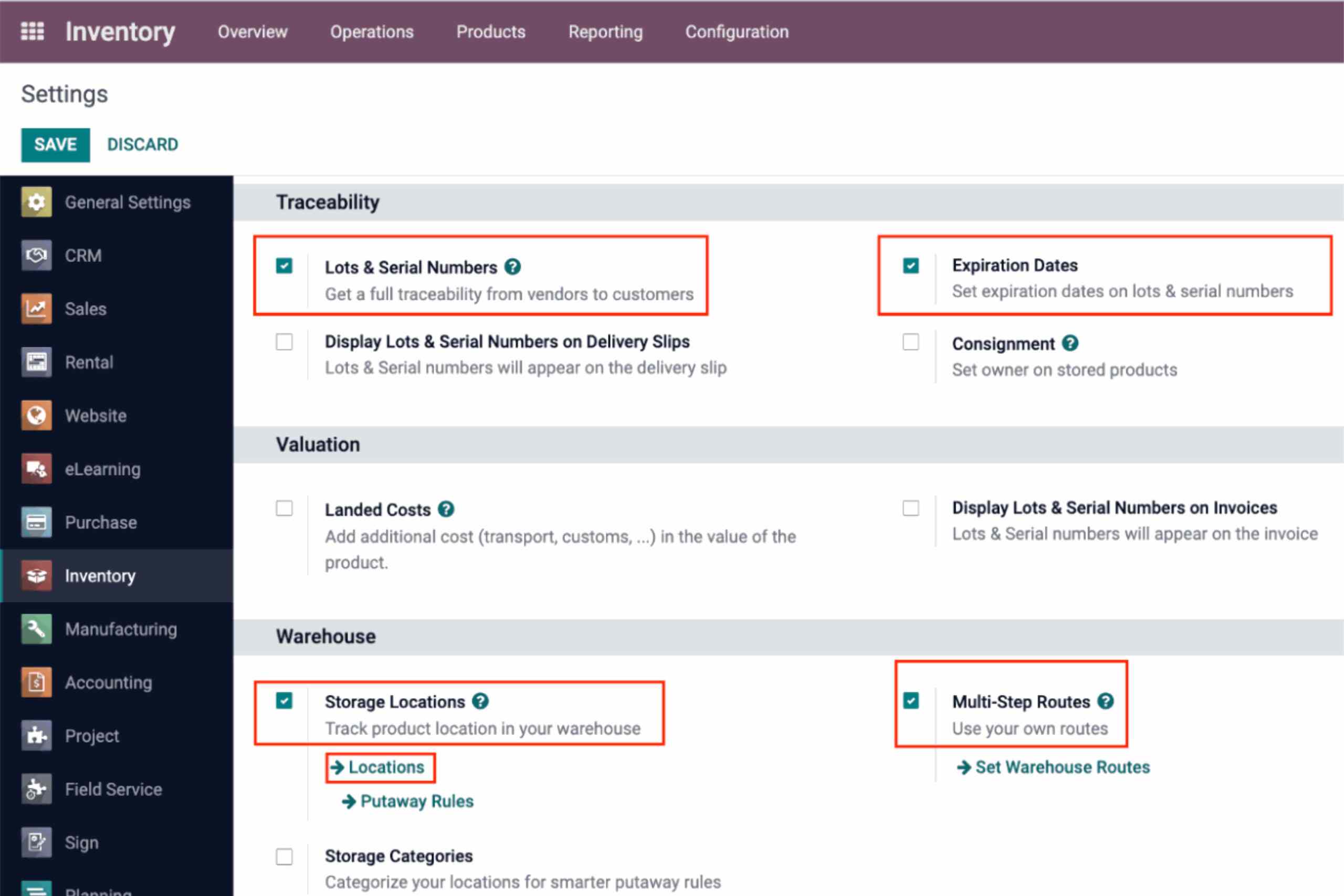
Pros
- Smooth workflow and the ease of use with user-friendly design
- Robust lot and number tracking with feature for inventory control
Cons
- Require time and effort to set up for production
- The pricing plan is consider to be quite substantial
OpenBoxes
This is a powerful open-source management system which gives developers the freedom to add new features and customize inventory.
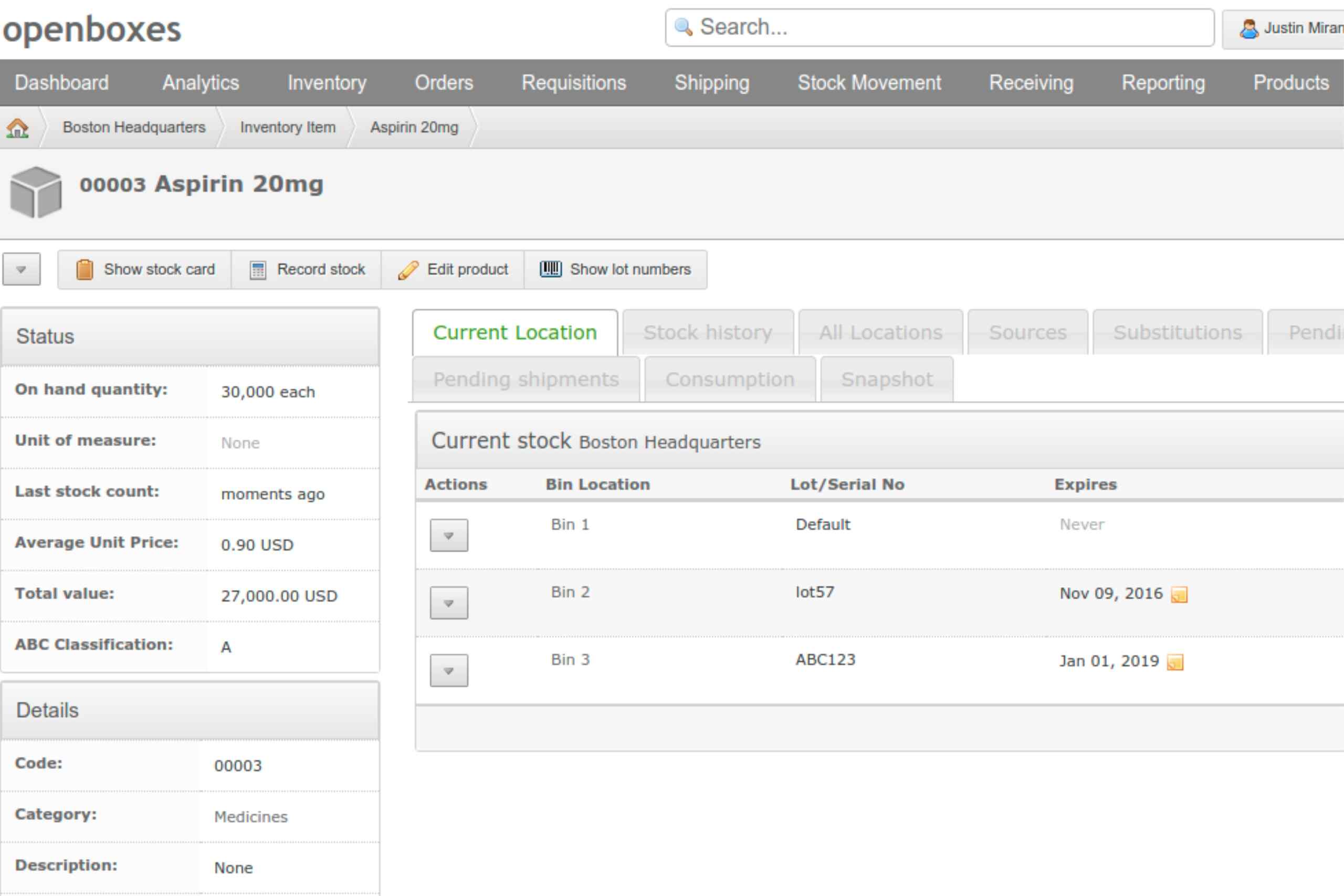
Key features
- Gain deep insights of stock history for products, providing real-time data to reduce the possibility of stockouts.
- Offer flexibility across the entire operation due to Java-based solutions which support any platform using this scripting language.
Pros
- Allow stock tracking
- Provide customization features to cater specific demand
Cons
- Require technical skills to have better utilization due to open-source based cross-platform package
Oracle NetSuite WMS
As a top-notch ecommerce warehouse management system, NetSuite helps you eliminate manual processes, allowing you to minimize handling costs and consistently meet customer expectations.
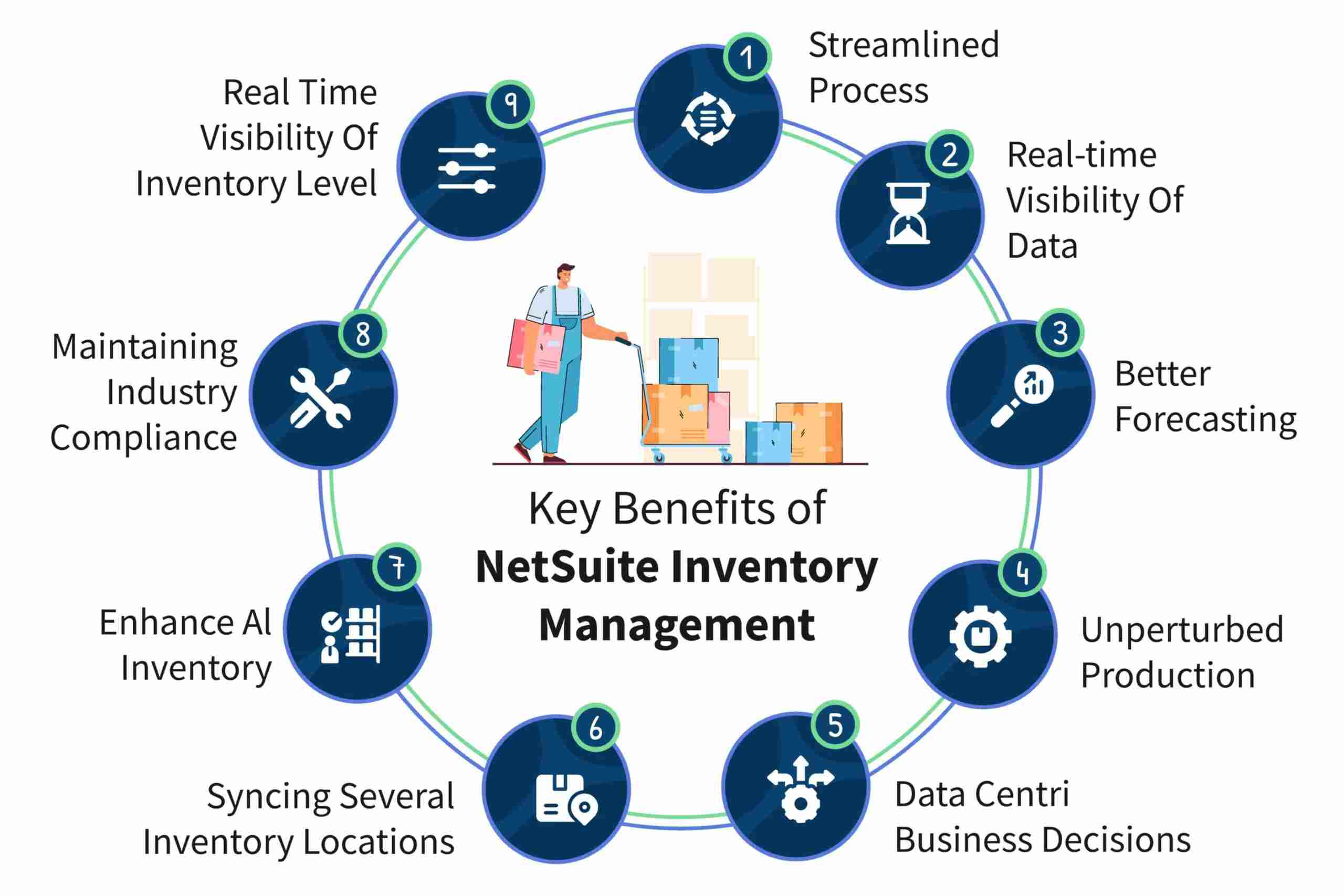
Key features
- Automate picking, packing, shipping across multiple warehouses
- Offer real-time visibility and control of stock levels
- Automate and manage order processing and fulfillment
- Measure productivity in real time with outbound processing and in-depth visibility.
- Manage purchase requests, invoices, returns within one system
- Collaborate with third-party integrations for efficient shipping management
Pros
- A broad and deep set of features
- Advanced methods and tools for managing inventory
Cons
- Limitations in pricing plans
- Higher tag for additional features
- Limited analytics functionality
SkuVault
This is a sophisticated ecommerce inventory management solution under Linnworks.
Key Features
- Provide precise inventory control, seamless integration with multiple sales channels
- Include advanced features like dynamic replenishment and real- time reporting
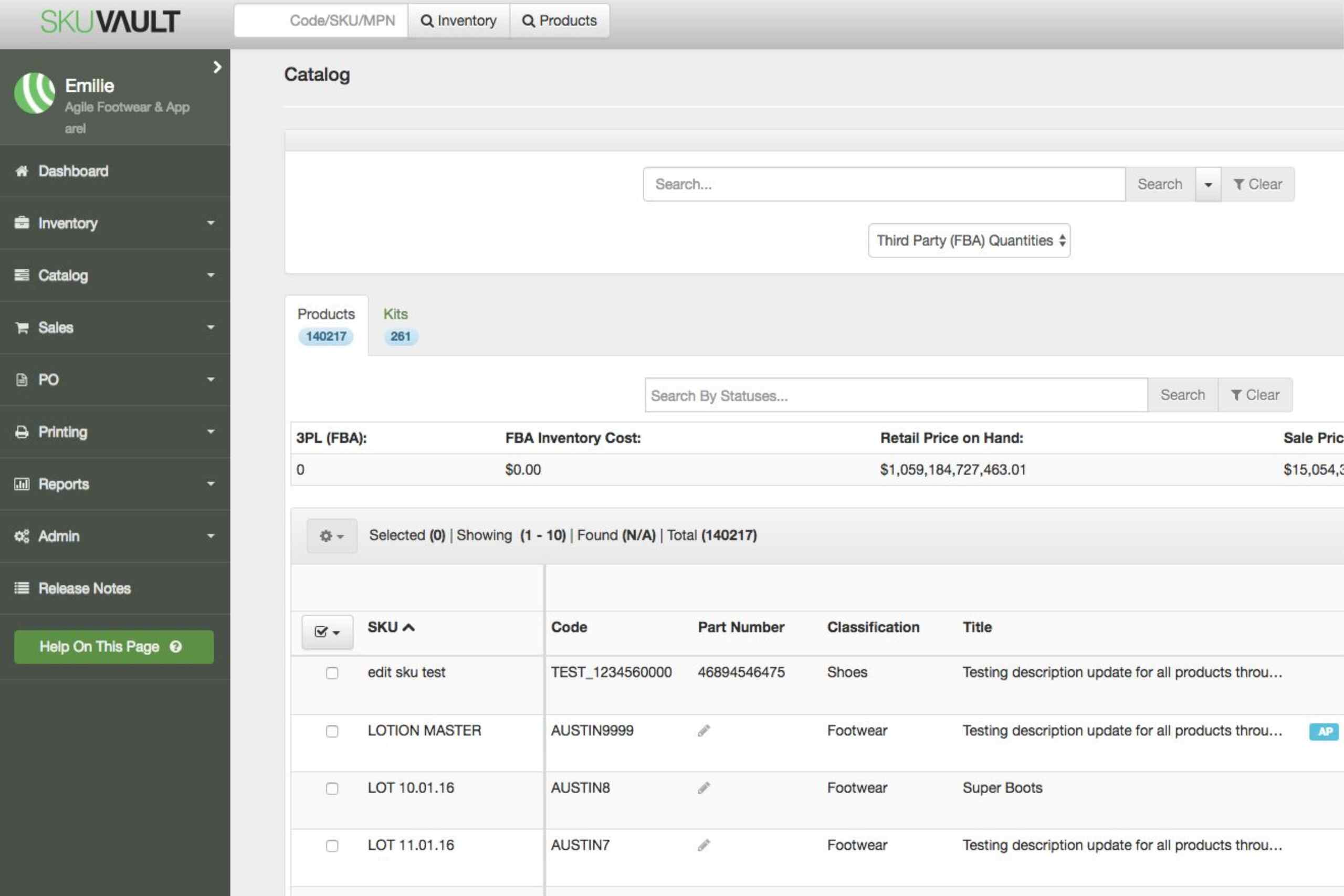
Pros
- Improve warehouse operations and streamline order fulfillment processes by integrating a warehouse management system.
- Minimize stockouts and overstock situations using dynamic replenishment which automatically generates replenishment orders by preset thresholds.
- Access inside into inventory performance, sales trends and operational metrics with SkuVault’s reporting feature, empowering informed decision- making and strategy formulation.
Cons
- Certain users my experience a steep learning curve when navigating SkuVault due to its extensive features and customizable options
- Certain users have noted that the repetitive scanning process may be time – consuming
Fishbowl
Fishbowl stays on top ecommerce warehouse management when mentioning this field.
Key features
- Automate and scale business of any size
- Have capability in offering real-time cloud visibility across various locations
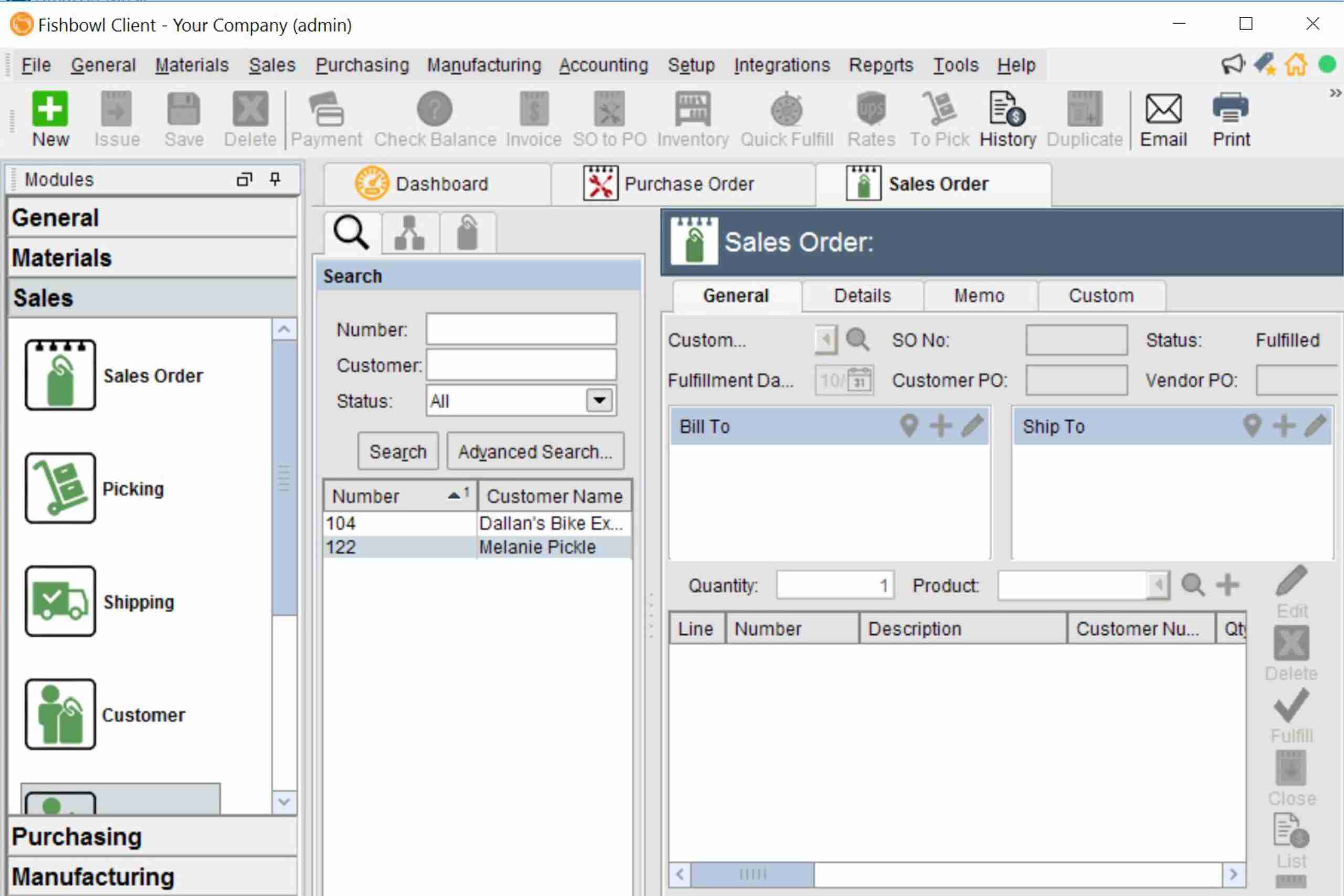
Pros
- Facilitate payments seamlessly with a robust online ecommerce checkout solution
- Monitor stock levels, locations and movement in real time, using advance inventory checking, offering comprehensive management capabilities for your business
- Efficiently handle customer’s orders by updating issues, shipping details within a single platform
Cons
- Customization limitations: it may have constraints when it comes to tailoring the software to very specific business processes
- Integration considerations: it is crucial to verify the compatibility of any integration platforms before implementing to prevent any conflicts
Conclusion
Efficient ecommerce warehouse management is essential for businesses that want to streamline operations and excel in an increasingly competitive online marketplace. This is especially paramount when putting into the situation of the growing ecommerce sector which needs constant inventory and cargo movement. .
That’s also where a company like AHT Tech comes in. With rich experience in ecommerce development, AHT Tech offers expertise in multiple fields that directly enhance ecommerce warehouse management. As a trusted partner of 25+ established ecommerce corporations, we work hand-in-hand with you to tailor ecommerce consulting and operation, which includes warehouse management systems that not only meets but exceeds your current and future demands.
Don’t hesitate to contact us immediately for more detailed information!
You can view more about our development service in this video below:


